Text
One thing I started doing a long time ago that changed my relationships is I started making myself speak up when I had nice thoughts. If I’m in line at the grocery store & I notice that the woman in front of me has beautiful eyes, I say something. If my sister walks in the house & I like her eyebrows, I say something. People forget how much little tiny compliments like that can make someone’s whole day. It doesn’t even have to just be compliments. It could be saying “I love you” when you’re thinking it even if it’s at a random time. Sometimes I get up and go over to my mom just to give her a hug out of the blue cause I was thinking about her. I’ll randomly send my friends texts about how I appreciate them whenever I’m thinking it. Little gestures like that mean so much.
51K notes
·
View notes
Link
READ THIS FUCKING INTERVIEW!
Some things to note:
Trump did not think that he took to long to release a statement on Charlottesville and his excuse was that he didn’t want to make a quick statement so he can get all the facts. But remember that he DID make a quick statement, and his most recent one that took so long was due to the backlash of the initial one. You know, the one where he blamed both sides and refused to call white supremacy by name.
He thinks that he is bringing the country together and fixing race relations because he’s “created over a million jobs since I’m president. The country is booming, the stock market is setting records. We have the highest employment numbers we’ve ever had in the history of our country. We’re doing record business. We have the highest levels of enthusiasm.“
He was asked several times if the event was terrorism to which he responded “Well, I think the driver of the car is a disgrace to himself, his family and this country, and that is … you can call it terrorism. You can call it murder. You can call it whatever you want. I would just call it as the fastest one to come up with a good verdict. That’s what I’d call it. Because there is a question. Is it murder? Is it terrorism? And then you get into legal semantics.” Ok then…
When asked about Steve Bannon Trump wanted everyone to know that Bannon is “a good man,” and “not a racist,” and that the press is very unfair to him.
Trump got defensive about the term “alt-right” and egged on the reporters to attempt to define it for him. He then blamed the “alt-left” for charging at the “alt-right” in Charlottesville and asked “Do they have any semblance of guilt.” He then said the group on one side was bad (neo-nazis) but the group on the other side was also bad, didn’t have a permit, and were “very violent.“
Trump then starts to DEFEND THE SIDE WITH NEO-NAZIS AND WHITE SUPREMACISTS! He goes on that “Not all of those people were white supremacists, by any stretch,” and they were simply there to protest the taking down of Robert E. Lee’s statue. When the reporter later tells Trump that the neo-nazis came to Charlottesville to do just that, Trump said “you have some very bad people in that group, but you also had people that were very fine people on both sides.” He then said that there were many people on the side of the white supremacists who weren’t actually white supremacists and they are being treated “absolutely unfairly.”
“It looked like they had some rough, bad people: neo-Nazis, white nationalists, whatever you want to call them. But you had a lot of people in that group that were there to innocently protest.”
A reporter asked Trump outright “Do you support white nationalists, then?” As a response, Trump got defensive about George Washington being a slave owner and Thomas Jefferson being a slave owner, and asked if we’re going to start taking their statues down. He then said by taking the statues down, like Robert E. Lee’s, we are “changing history,” and “changing culture,” somehow.
When asked if he is going to visit Charlottesville and help heal the nation, Trump went on to talk about his property in the town. “I own a house in Charlottesville. Does anyone know I own a house in Charlottesville? Oh, boy, it’s going to be- it’s in Charlottesville, you’ll see. It’s a- it is the winery” … “I own- I own actually one of the largest wineries in the United States that’s in Charlottesville.” Yep…
4K notes
·
View notes
Text
Happy birthday, Ted Hughes (b. 17 August 1930)
“The only calibration that counts is how much heart people invest, how much they ignore their fears of being hurt or caught out or humiliated. And the only thing people regret is that they didn’t live boldly enough, that they didn’t invest enough heart, didn’t love enough. Nothing else really counts at all.”
- Letters of Ted Hughes

Ted Hughes and Sylvia Plath at home
190 notes
·
View notes
Quote
Don’t call it a dream. Call it a plan.
Unknown (via quotemadness)
11K notes
·
View notes
Photo

Ja Kang Song, 71, and Ja Hyun Su, 72, diving for shellfish. In South Korea, 45% of the diving women of Jeju are aged over 70. Routinely diving to depths of 20 metres and staying under for an average of two to three minutes, the pressure on the body takes its toll and, as with many others, burst eardrums have left Ja Hyun Su deaf. Each season, between seven and 10 women die diving the waters around Jeju Island.
1K notes
·
View notes
Photo

Aleksandr Rodchenko’s cover design for Novyi LEF 3–4, 1927, showing the 1917 dismantling of the monument of Tsar Alexander III.
478 notes
·
View notes
Text
Tips for Overcoming Insecurity
1. Believe you can make progress, and start to overcome it. That is the first, and the most important, step.
2. Think about a time when you took a chance, and pushed through your fear, and it worked out well. Remember that feeling – it can happen again.
3. Look for a role model - someone you relate to - who managed to overcome their insecurities. Let them inspire you and learn from their success.
4. Let go of the past, and whatever holds you back. Just focus on this moment, and taking one step now.
5. Stop resisting change – let whatever happens happen. You may discover that it works out even better than you’d thought.
6. Let the stress fall away and allow peace to flood your mind. As you learn to relax you’ll start to feel more confident.
977 notes
·
View notes
Photo

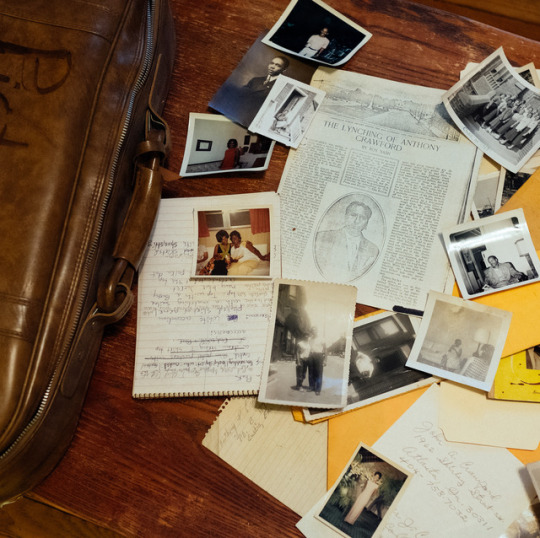
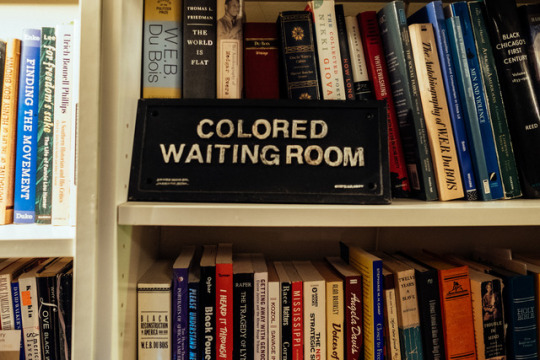




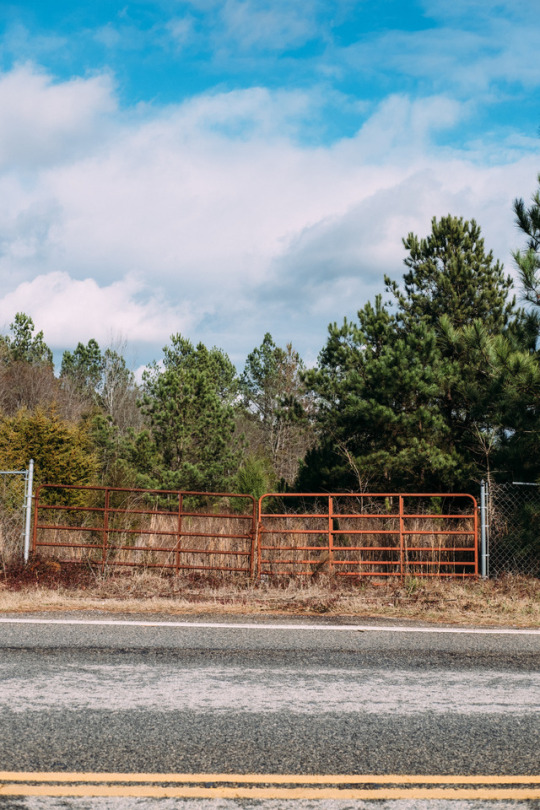


From Grandpa to Emmett to Trayvon, the trajectory of lynching history has shifted over time in America. When Grandpa was killed in 1916, there was no charges brought and no trial. In 1955, Emmett Till’s murder, there was a trial, but no convictions. And then Trayvon Martin, now you have a trial and not-guilty verdict. All the time you have dead black bodies and nobody is ever convicted for the murders. —Doria Dee Johnson
When Doria Dee Johnson was growing up, a large photo of her great-great-
grandfather Anthony Crawford hung above her aunt’s dinner table. Her family would say, “Walk with a sense of pride,” because Grandpa Crawford, as the family called him, defended himself up until his last moments.
A successful businessman and landowner, Mr. Crawford was lynched in Abbeville, South Carolina, in 1916 after disagreeing with a white store owner over the price of cottonseed that Mr. Crawford brought to the market. His last words were, “I thought I was a good citizen. Give my bankbook to my children.” Following the lynching, the Crawford family fled the South in fear for their lives, leaving behind their 427 acres of prime cotton land.
Ms. Johnson explains that upon visiting the land her family was forced to give up, she felt compelled to become an activist and historian. Today, she is a Ph.D. candidate in history at the University of Wisconsin–Madison, where her focus is the migration of African Americans from the South to Evanston, Illinois, during the Great Migration. On the one hundredth anniversary of her great-great-grandfather’s lynching, Ms. Johnson, along with two hundred of her family members and the Equal Justice Initiative, erected a memorial to Anthony Crawford in Abbeville. “The story has been denied for so long,” Ms. Johnson said. “But now, if you go to Abbeville City Hall to do business, you have to walk right past Anthony Crawford to do it. You can’t bypass him anymore.”
Click here to hear her story, and explore The Legacy of Lynching at the Brooklyn Museum now through September 3.
Original photography by Melissa Bunni Elian for the Equal Justice Initiative, 2017
294 notes
·
View notes
Quote
If you live to be a hundred, I want to live to be a hundred minus one day so I never have to live without you.
A.A. Milne (via quotemadness)
1K notes
·
View notes
Link
“So this week it’s Robert E. Lee. I noticed that Stonewall Jackson’s coming down. I wonder, is it George Washington next week? And is it Thomas Jefferson the week after? You know, you really do have to ask yourself, where does it stop?…. [Jefferson] was a major slave owner. Are we going to take down his statue?” — President Trump, Aug. 15, 2017
The president made this statement Tuesday while jabbing at reporters over a white supremacist rally in Charlottesville, Va., where white nationalists protested the removal of a statue of Confederate Gen. Robert E. Lee.
And he used one of his standard rhetorical techniques, “whataboutism.”
While defending the protesters and claiming that they weren’t all white supremacists, he changed the subject to attack others. “What about the alt-left?” he said, when asked about the white nationalist alt-right. (“Alt-left” is a term seemingly invented for whataboutism, making liberals seem like the moral equivalents of the “alt-right,” whose members coined that term themselves.)
The president’s whataboutism on history is the focus here.
756 notes
·
View notes
Photo
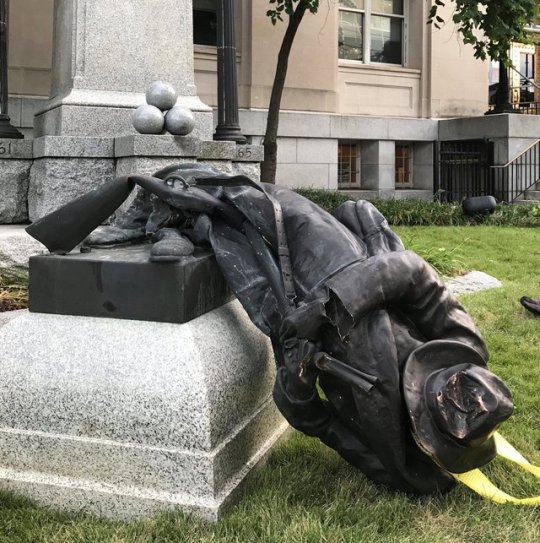
Confederate Soldiers Monument, Durham, North Carolina, supplied by the McNeel Marble Company, Marietta, Georgia, and dedicated in 1924 to “the boys who wore the gray.” Resculpted 2017.
135 notes
·
View notes
Photo
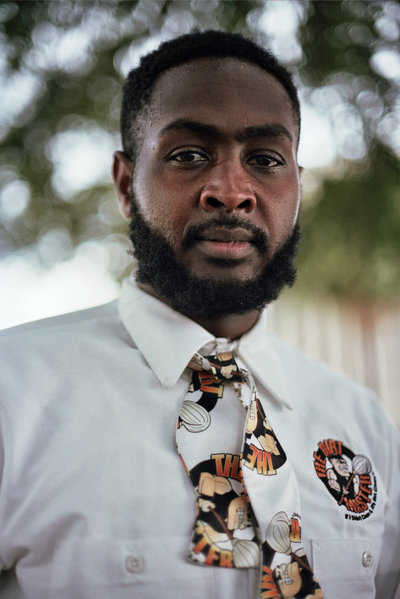
The moments inside a courtroom in Orlando in 2007 were quick and consequential for Marquis McKenzie. The 16-year-old stood handcuffed behind a lectern. A juvenile judge announced his charges, then apologized that he could no longer take up the case.
“You’re being direct filed,” he told McKenzie, who was accused of armed robbery over a cellphone and a wallet. “You understand what I’m saying? You’re being charged as an adult now.”
As a 16-year-old, Marquis McKenzie was sent to the juvenile section in one of Florida’s medium security private prisons.
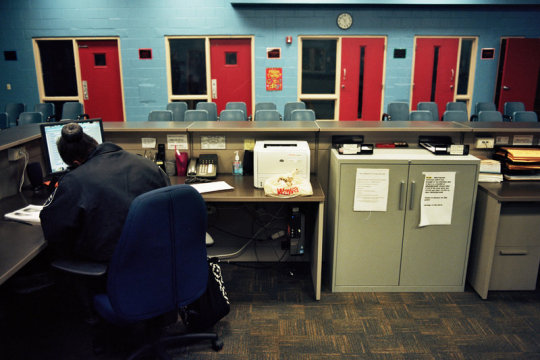
“I had never been in that situation. I had gotten in trouble, but I had never gotten arrested,” he recalls a decade later. “I just knew it was going to be a hell of a ride from there.”
The juvenile judge’s announcement meant that McKenzie was no longer solely subject to the rehabilitative services offered within Florida’s juvenile system. He was now facing a 10-year sentence. A judge in one of the state’s criminal courts would have the option of sending him two hours away to residential confinement at a youth facility, or to the juvenile section in one of Florida’s medium security private prisons.
The latter is where McKenzie ended up. That same year, more than 3,600 other kids were direct filed and sent to adult court, too.
Across the country, lawmakers, juvenile justice advocates and community groups are shifting away from direct file, and rethinking their approach to handling kids and young adults who commit crimes.
Florida, more than other states, has traditionally embraced an aggressive direct file system run by state attorneys who opt to transfer kids out of the juvenile court system and into the adult criminal system. The repercussions are great and the options for navigating the complex system are limited.

Sentenced To Adulthood: Direct File Laws Bypass Juvenile Justice System
Photos: Joey Roulette/WMFE
245 notes
·
View notes
Quote
If a poem hasn’t ripped apart your soul; you haven’t experienced poetry.
Edgar Allan Poe (via quotemadness)
29K notes
·
View notes





